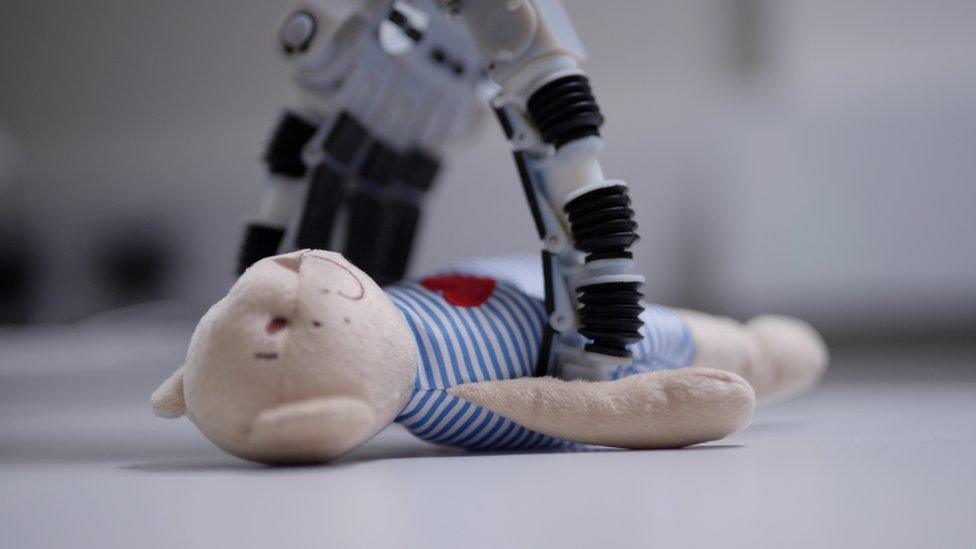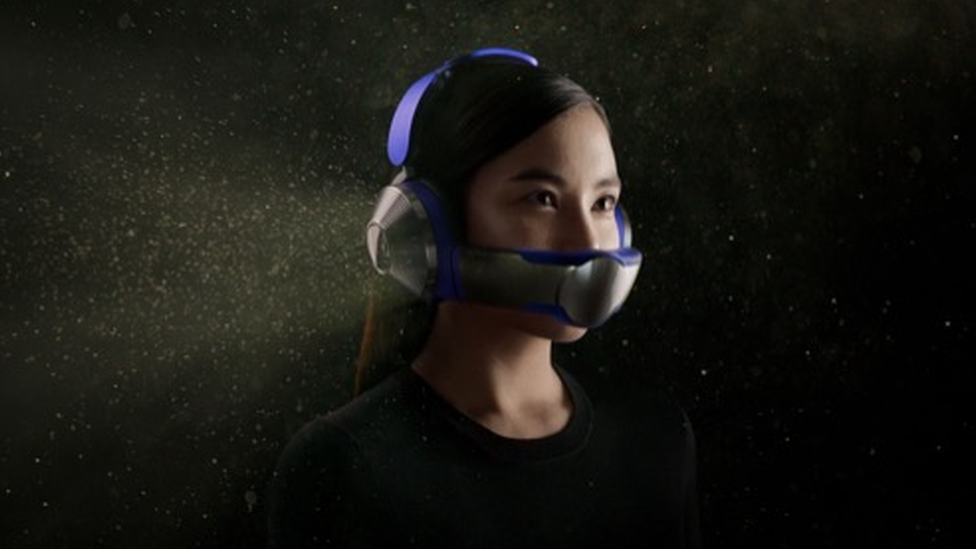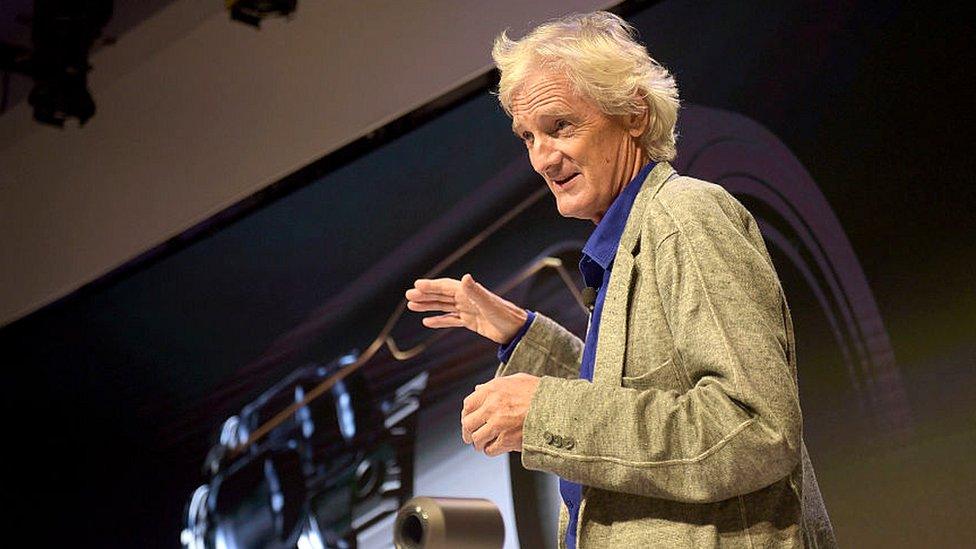Dyson working on home robots
- Published

Dyson is moving beyond vacuum cleaners and hand driers and will try to develop robots capable of helping with household chores.
The company has announced plans to create a major robotics centre at its facility at Hullavington Airfield, in Wiltshire, that will work on new types of domestic robot.
The site will be home to 250 robotics engineers.
Dyson already produces robotic vacuum cleaners.
Computer vision
Founded in the UK, the company is now headquartered in Singapore.
Dyson says it is investing heavily in developing new technology - and half of the 2,000 people to have joined the company this year are engineers, scientists or coders.
It is also hiring robotics engineers across disciplines including computer vision, machine learning, sensors and "mechatronics".
The company revealed glimpses of some of its work, in a video at the International Conference on Robotics and Automation, in Philadelphia.
Allow YouTube content?
This article contains content provided by Google YouTube. We ask for your permission before anything is loaded, as they may be using cookies and other technologies. You may want to read Google’s cookie policy, external and privacy policy, external before accepting. To view this content choose ‘accept and continue’.
Robot arms are briefly seen picking up plates, a bottle of detergent and a soft toy - but what kind of commercial devices this work might lead to is not revealed.
Dyson has been attempting to broaden the range of products it offers.
It recently took a first step into wearable technology - but its over-ear headphones with an air-purifying mouth visor received mixed reviews online, with "odd-looking" and "dystopian" among the terms used to describe them.
And some attempts to move into other areas have proved commercially unviable, most notably in 2019 when the company abandoned an electric-car project.
- Published30 March 2022

- Published11 October 2019
